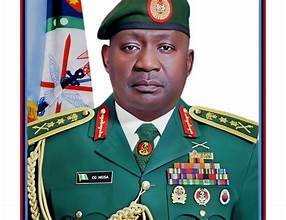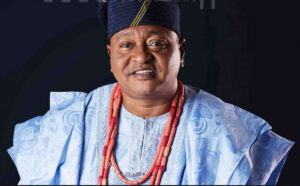The exit of Under-23 from Olympics football event
[ad_1]
PENULTIMATE weekend, the Salisu Yusuf-coached U-23 football team lost 2-0 to their Guinean counterparts in the second leg of the qualifier for the Total Energies Under-23 Africa Cup of Nations (AFCON) tournament. With the defeat, the Nigeria U-23 team, winners of the 2015 edition of the event, also misses out on the football event at the 2024 Summer Olympics holding in Paris, the French capital. The Olympic Eagles, as the U-23 team are called, were not the only continental giants to miss out as the Senegalese U-23 team also lost to Mali, having failed to defend a 3-1 lead from the first leg.
From one perspective, the U-23 team’s exit is a mere storm in a teacup. Participation in the football event at the Olympics guarantees only one medal, and the country can make up for absence from the football event with a good showing in other sports, particularly track and field. In any case, the country has won the U-23 men Football event before and can easily bounce back next time. Instead of endlessly bemoaning the loss, the team should take its lumps and focus on the qualifiers for the 2028 Summer Olympics.
A different perspective, one that we are partial to, holds that the U-23 team’s inglorious exit at the hands of a Guinean team it should have dispatched easily is a symbol of deeper problems with the organisation of football in the country. The men’s national team, the Super Eagles, also failed to qualify for last year’s FIFA World Cup after losing a two-legged playoff to the Black Stars of Ghana. All in all, and especially over the past decade, the country has attained excellence in dribs and drabs, failing to consolidate when a little investment here and there might have given it the opportunity to prolong the good moments.
Evidently, the scandalous state of sporting infrastructure in the country is a nagging problem and is one of the many reasons why it is almost impossible to nurture talent. Furthermore, and particularly in the case of football, Nigerians have more or less given up on the local league, the smooth running of which continues to be hampered by the country’s economic and security challenges. The average Nigerian, otherwise passionate about football, does not care about the Nigerian Professional Football League (NPFL), whose games, and never shown on live television, are witnessed only by a handful of fans.
That a rethink of Nigeria’s sports administration is urgently needed goes without saying. To that extent, we are gladdened by the news of the inauguration of a 10-man technical committee by the Federal Government to develop a policy for sports as a business in the country. We welcome the idea of the committee, insofar as it is underpinned by the understanding that the only role of government in sports is to facilitate the conditions that will draw interested private investors into the business of sports.
Nigerians are watching.
READ ALSO FROM NIGERIAN TRIBUNE
[ad_2]














Post Comment